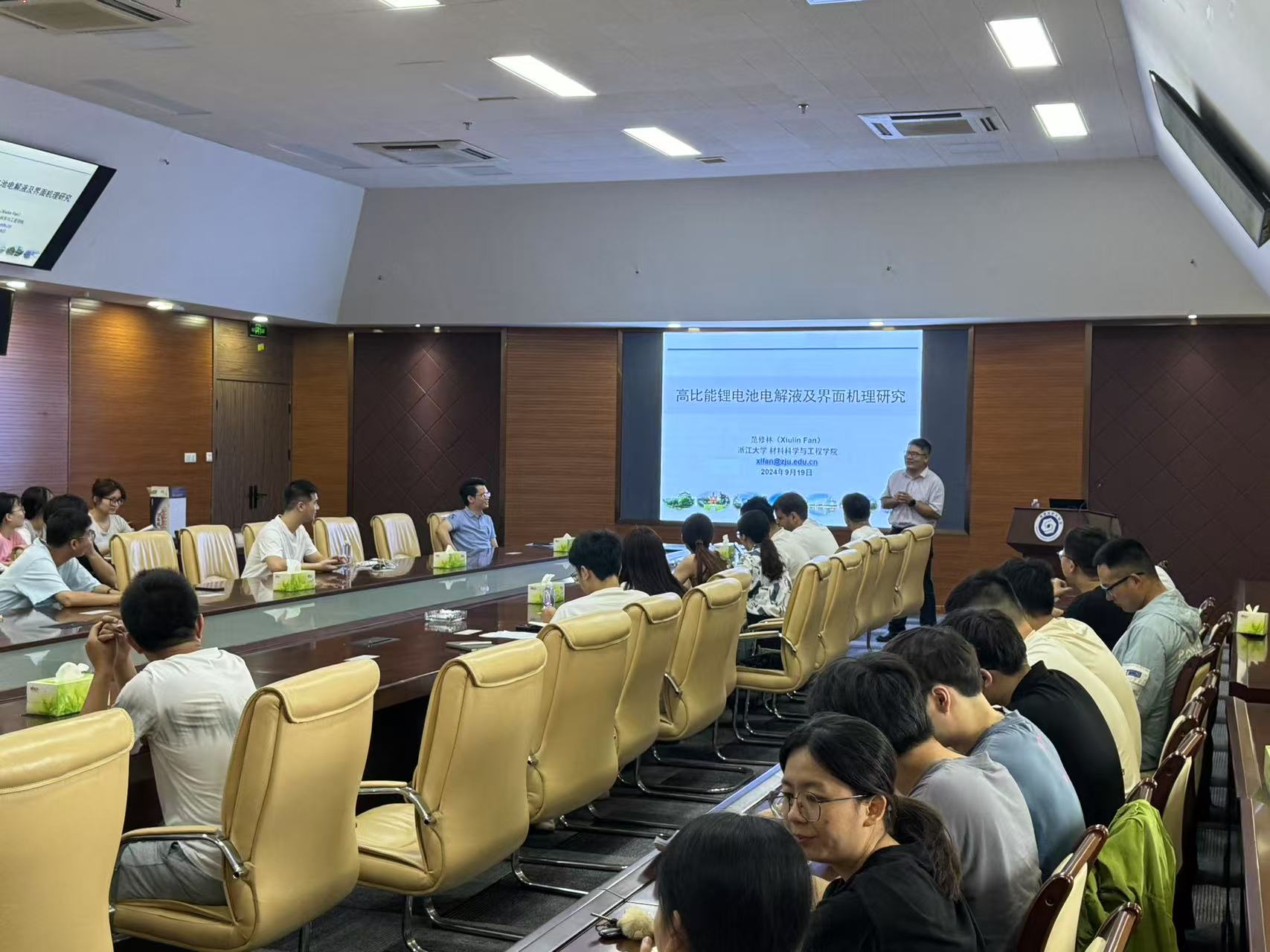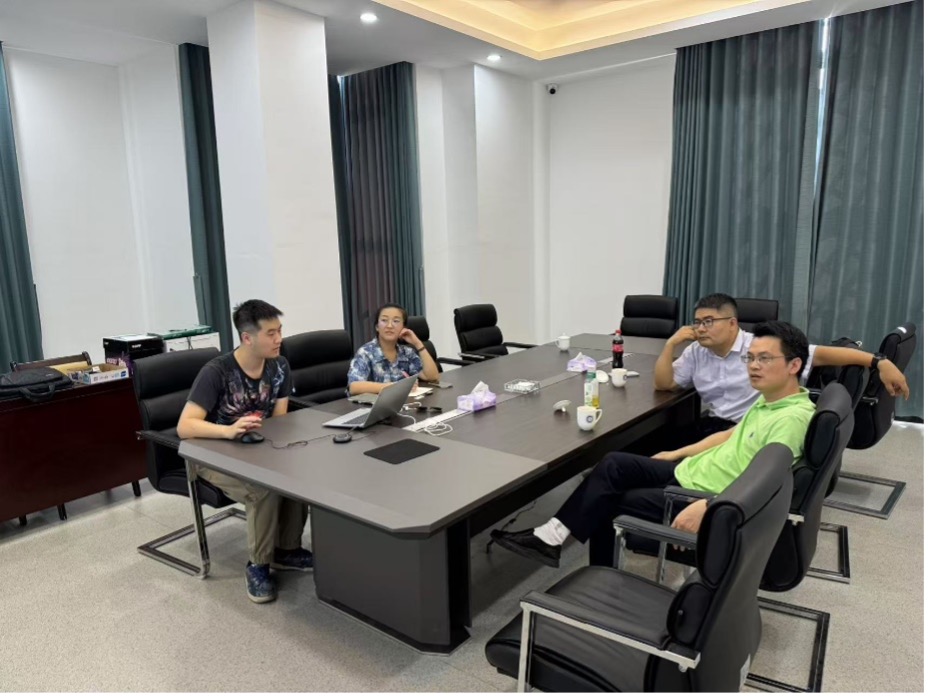On September 19, 2024, Prof. Fan Xiulin from Zhejiang University was invited by Professor Yuxin Tang from Fuzhou University and Qingyuan Innovation Laboratory to visit our research group and give a wonderful academic report titled “Research on electrolyte of new type of lithium batteries with high specific energy” in the lecture hall on the 5th floor of the library of Qingyuan Innovation Laboratory.
The research background of the new high specific energy lithium battery electrolyte mainly stems from the demand for lithium battery performance improvement. With the growing demand for high energy density batteries in electric vehicles, wearable devices, etc., the stability of traditional electrolytes in high voltage and high energy density has become increasingly prominent, especially in the operating temperature range of the battery and the limitations of interfacial stability. Existing commercial Li-ion battery electrolytes are prone to oxidation above 4.3V and cannot form a stable cathode electrolyte film (CEI), limiting the safety and efficiency of the battery. In addition, the interfacial reaction mechanisms between negative electrode materials such as lithium metal, graphite and silicon and the electrolyte are different, which also affects the overall electrochemical performance of the battery. Therefore, the development of new electrolytes to improve the stability of electrolytes, increase the operating temperature range, and optimize the interfacial reaction mechanism has become a key research direction to enhance the performance of lithium batteries and promote the development of battery technology.
In this report, Prof. Fan Xiulin discusses the oxidation of commercial EC-based electrolytes at high voltage and its adverse effect on the stability of the cathode electrolyte membrane (CEI), pointing out that this problem has limited the development of high-energy-density lithium batteries. Meanwhile, the report also analyzes in depth the limitations of the operating temperature range of existing batteries and the effects of the differences in the mechanisms of the interfacial reactions between anode materials such as lithium metal, graphite, and silicon and the electrolyte on the performance of the batteries. The professor further analyzed the intrinsic mechanism of this series of electrochemical reactions in terms of the composition, composition, microstructure, and interfacial reactions of the electrolyte, and discussed how to achieve a significant broadening of the battery's energy voids and operating temperatures. The presentation aroused great interest and curiosity among the participants. The participants actively participated in the discussion and had in-depth exchanges with Prof. Fan Xiulin on related research areas.

Lecture scene
This presentation not only provides valuable academic inspirations for the participants, but also provides an exchange platform for researchers in the field of electrochemical energy storage and promotes interdisciplinary cooperation and knowledge sharing. We believe that through such academic exchanges and cooperation, greater breakthroughs in lithium battery technology and electrolyte optimization will be achieved in the future, laying a solid foundation for the development and application of battery technology.

Scene of discussion
